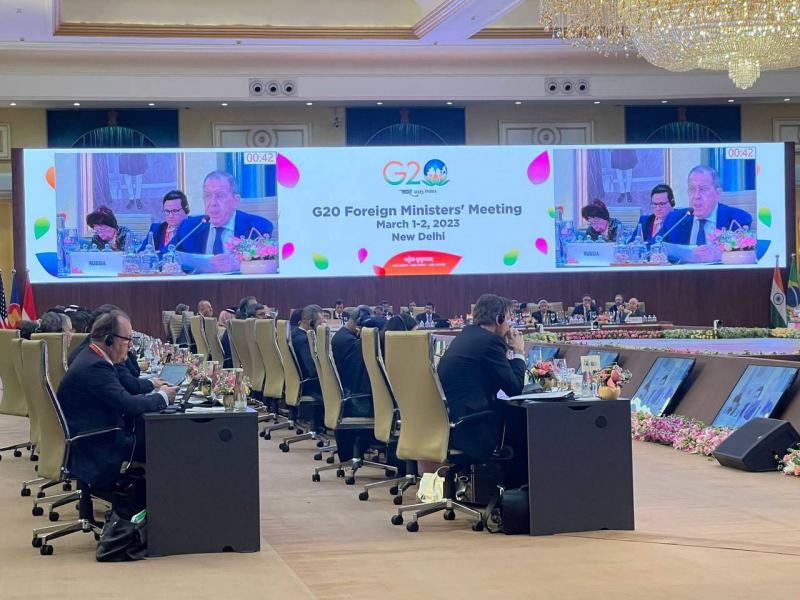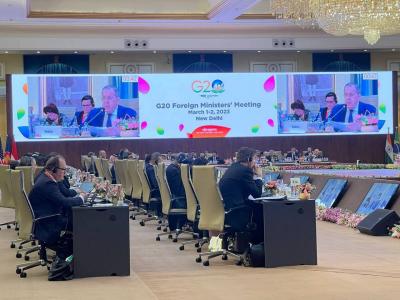Russian Foreign Minister Sergey Lavrov accused the West of sabotaging the Black Sea Grain Initiative, which facilitates the export of Ukrainian agricultural products from its southern ports. Although Russia remains committed to the agreement, it has repeatedly criticized the West's approach to the initiative, which was established in July, stating that countries imposing sanctions on Moscow are not doing enough to ease restrictions on Russian exports, particularly fertilizers.
During a meeting of G20 foreign ministers, Lavrov referred to the grain agreement, stating, "The West is brazenly burying the known humanitarian initiative mediated by the UN Secretary-General."
U.S. Secretary of State Antony Blinken argued that Russia has deliberately and systematically delayed grain shipments in recent months, while its own food, grain, and fertilizer exports continue. This was stated during his speech at the same meeting held in India. Blinken added, "It is essential for the G20 to speak in favor of extending and expanding the grain initiative to enhance food security for the most vulnerable."
The current phase of the agreement, mediated by Turkey and the United Nations, ends on March 18. It will be extended unless any party raises a formal objection.
Before the previous extension of the agreement in November, Russia intensified its criticisms to seek more concessions from the West, but ultimately allowed for a 120-day extension.
The Russian Foreign Ministry stated on Wednesday that it would not agree to a second extension of the agreement unless the interests of Russian agricultural producers are taken into consideration. Although Western sanctions do not directly target the Russian agricultural sector, Moscow claims that these sanctions affect payments, shipping, and insurance, thereby creating a "barrier" to its grain and fertilizer exports.




